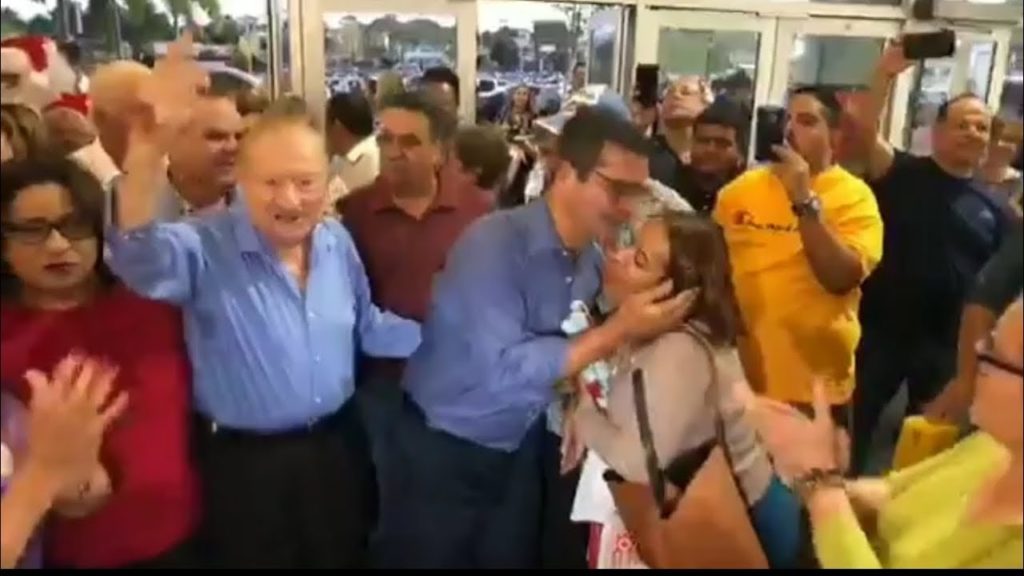
COMO HACER CAMPAÑA
COMO HACER CAMPAÑA
Hacer campaña es lograr que el mayor número de compatriotas favorezcan nuestro Partido. Existen varias formas de hacer campaña, si las conocemos y entendemos, podremos hacer nuestros esfuerzos más efectivos.
1. Tenemos que estar convencidos, racional y emocionalmente que nuestro objetivo es el mejor. Eso no es difícil si estudiamos la historia y la realidad socioeconómica de Puerto Rico.
Ahora el uso de las Redes Sociales en todos los niveles, en especial a nivel de barrios y sectores, es esencial.
2. Conocemos el sistema democrático, por lo tanto sabemos que las decisiones las toman la mayoría de los ciudadanos al expresarse a través de las urnas electorales. Pero … la forma de pensar y de tomar las decisiones de nuestros compatriotas pueden recibir influencias y cambiarse. La persona que puede cambiar la forma de pensar de uno o muchos compatriotas eres tú. Tenemos que saber de que podemos hacerlo y debemos hacerlo. Toda actividad, toda idea, tiene un principio; ese principio surge de una persona y esa persona puedes ser tú.
3. El mensaje de progresista lo transmitimos a otras personas mediante el esfuerzo intelectual y físico, analizando y creando ideas, formando imágenes nuevas que expliquen más claramente el porqué de nuestra causa, este es el esfuerzo intelectual. Hablando, escribiendo, participando en actividades; aportando nuestro tiempo, esfuerzo físico y recursos materiales y mediante nuestro ejemplo transmitimos el mensaje de estadidad a otros.
4. La labor la podemos realizar individualmente o en grupo. Individualmente, el mensaje que transmitimos es más personal. Cuando escribirnos a La Voz del Lector, hablamos con los amigos, asistimos a un funeral, visitamos a un enfermo o ayudamos a un compañero aunamos esfuerzos y aptitudes y nos complementamos unos a otros para llevar un mensaje más abarcador.
5. En forma directa lo hacemos en actividades identificadas con la política, tales como tertulias, mítines, caminatas, distribuyendo propaganda o sirviendo de funcionario de Colegio Electoral. Indirectamente, mediante el ejemplo que surge de nuestras actuaciones. Participando en actividades que no sean sociales, cívicas, profesionales, de trabajo y otras que no están directamente relacionadas con la política.
6. Dedicándole mucho o poco tiempo, mucho o poco esfuerzo, muchos o pocos recursos.
7. Como líder que dirige a otros, que los estimula, motiva; y entusiasma. Como seguidor que colabora, coopera, aporta desinteresadamente por la Estadidad, sacrificadamente.
8. Como líder estatal, de distrito, de precinto, de barrio, de sector o como líder voluntario, tan importante es el responsable de un pueblo, como el que está directamente relacionado con una comunidad diariamente siendo líder de barrio o sector.
Llevando el mensaje en forma agresiva y en forma sistemática, persuasivamente. Conversando, tratando de convencer o demostrando ciertos hechos para que los otros se convenzan por ellos mismos.
En forma pública, desde una posición de liderato, conocida por todos, la prensa, la radio y televisión; o privadamente en reuniones de amigos, familiares, vecinos y compañeros.
Sea cual sea la forma que entiendas mejor, puedes ayudar al Partido Nuevo Progresista, a la estadidad, a triunfar, tú y cada uno de los puertorriqueños debe hacerlo.
La principal labor del líder político es a de promover en todas las formas positivas posibles el que hablen del Partido, obras y candidatos. Principalmente organizando reuniones y actividades. Porque la campaña más efectiva y económica es de, persona a persona.
Ver http://en.wikipedia.org/wiki/Political_campaign_staff
http://www.ndi.org/files/Political_Campaign_Planning_Manual_Malaysia.pdf
http://politicalresources.com/Library/HOME.htm
Career: Political Campaign Worker |
Political campaign workers specialize in the art of winning elections. The profession includes many subspecialties: Press and public relations, polling, opposition research, fundraising, logistical organizing, and a wide range of other skills to deal with the crises of a campaign. In large campaigns, specialists representing all of these skills work together to develop integrated campaign strategies; in smaller, local elections, one or two professionals will serve as jacks of all trades, putting to use this entire range of skills and developing their expertise. Technical and tactical skills are extremely important in campaign management, but the ultimate emphasis in the profession is on winning. Campaign professionals with a reputation for victory can have lucrative, prominent careers; those who participate in too many losing campaigns will have trouble finding work. This is a career for people who love the thrill of the chase. Many get into the profession by volunteering for a particular candidate they support and falling in love with the excitement of campaigns. In the weeks preceding elections, campaign professionals work full time, twenty-four hours a day, seven days a week, as they plan and coordinate down-to-the-wire campaign strategies. Deadline pressure is intense, as election day provides a final test of the staff’s campaign work. Many in the profession thrive on the pressure; others burn out and find other work. Campaign management is also highly public work. Pollsters and researchers may work behind the scenes, but the press and public relations specialists, and those who wish to rise to the top of the profession and become campaign managers, must feel comfortable working with the media. At the highest level of political campaigns, statements and actions of senior campaign aides are as those of the candidate. Some relish this visibility; others find it one of the profession’s major drawbacks.
The career campaign professional’s first exposure to politics is usually as a volunteer for a campaign, perhaps over summer vacation while still a student. Volunteers perform the bulk of the low-level jobs in every campaign, but they are often found in positions of substantial responsibility in smaller, local campaigns. A bright, hard working volunteer can rise rapidly in a re-election staff, and this is often the best way to acquire the credentials that can lead to a career working on major political campaigns. In some of the profession’s disciplines, educational or career background is also extremely important. Training in statistics is a prerequisite to polling and voter analysis; many influential pollsters have doctorates in statistics. Many political workers begin as journalists and then put their knowledge of the media to use as press aides and campaign spokespeople. A degree in political science can also be useful. Some universities offer masters degrees in political management, itself a testament to the wide range of skills required to manage a campaign. This can also be an effective route into the profession.
Campaign workers often depart to fields where the skills they have developed will be valuable, such as advertising, public relations, and journalism. Some go to law school, often with an eye towards developing their own political careers. The more senior victorious campaign workers often take jobs as press secretaries, political and policy consultants, or general staff workers in the administrations of their successful candidates.
